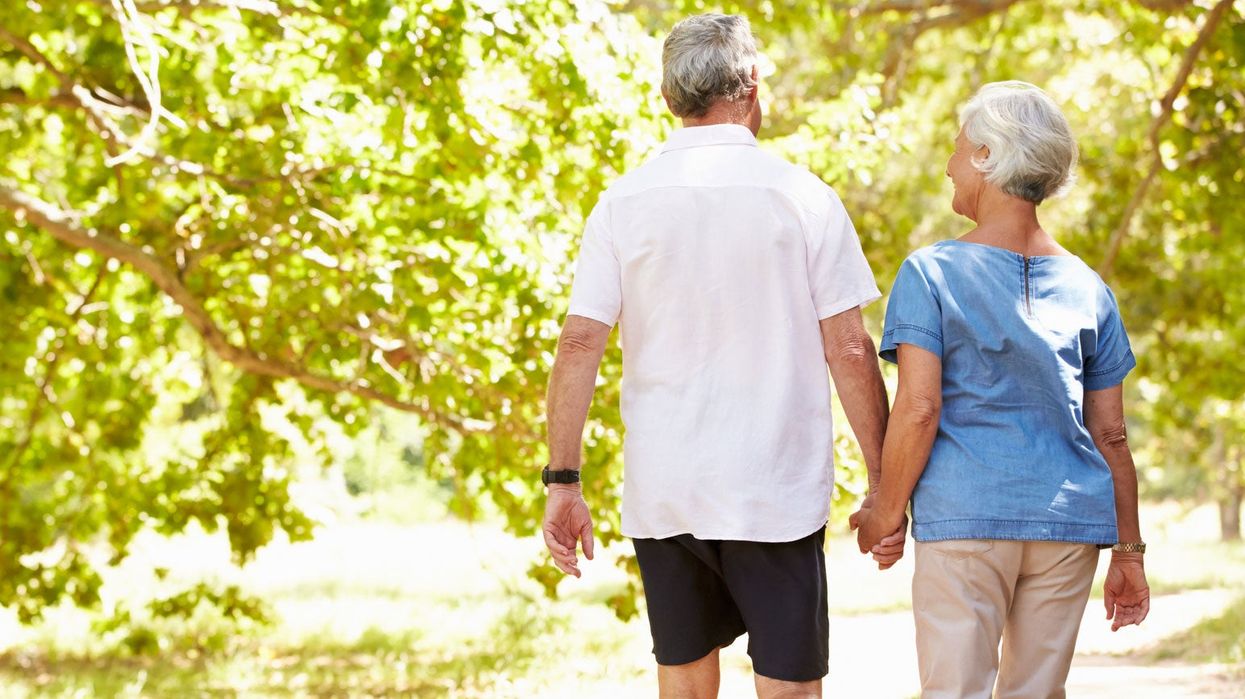News
Mimi Launder
Jul 23, 2018
Health risks might be the last thing on your mind when enjoying barbecues, long evenings and pub gardens - but hot weather can prove fatal, particularly for vulnerable people.
The Met Office issued an amber heatwave warning in a week where we could see the UK's hottest day of the decade.
Temperatures will dip, but fine weather is predicted to remain into mid-August, said forecaster Craig Snell.
With hot weather, people can suffer from heat exhaustion and, if left untreated, heatstroke, which is a life-threatening condition. You can read more about symptoms of both here.
Groups who are at particularly at-risk during hot weather include older people, especially those over 75 or who live alone; people suffering from mental illness, dementia or chronic ill health; and homeless people.
Here are the tips from Age UK, as well as homelessness charities Crisis and Shelter, on how you can help vulnerable people during a heatwave, as well as keeping yourself healthy.
1. Check they are OK.
People - especially older people - who have existing health problems or live in housing that is hard to keep cool and well-ventilated are particularly at risk.
Caroline Abrahams, Age UK’s charity director, advises anyone with an older family member or neighbour to keep in touch with them:
It may be that offering to bring in some groceries, for example, so they don’t have to endure the heat outside would be very welcome over the next few days.
Likewise, homeless people can often be without a support network, advises Shelter. If you're worried about someone, you can sign up with Street Link to help connect them to local outreach services.
If you are on your own and have any concerns, you can also let people know where you are.
Be particularly aware of the homeless people around you. John Sparks, chief executive at Crisis, said:
Rough sleeping is incredibly dangerous at any time of year, but as temperatures continue to soar, dehydration and heat exhaustion pose particular risks for those forced to sleep on the streets.
2. Help them stay out the sun.
Remaining indoors when it's hottest, from late morning to mid-afternoon, can save you from the worse of the heat. Keeping curtains and blinds closed can add further protection.
If you do go outside, make sure you use sunscreen of factor 50 or above, wear a hat and stay in the shade when possible.
Likewise, you can make the most of the cooler temperature at night, advises Abrahams:
Letting the cooler air in at night and shutting it out during the day, plus shading your home as much as you can are other top tips from the weather experts.
Hats, sunglasses and sunscreen are helpful for homeless people in the summer months, says Shelter. You can either approach someone sleeping rough directly or donate.
Sparks, from Crisis, added:
People living on the streets may spend nights on the move in order to stay safe, which means they often sleep during the day time, so offering to help someone to find shade could save them from severe sunburn.
3. Offer them plenty of fluids.
This goes for everyone: drinking plenty of fluids (even if you're not thirsty), as well as eating well to ensure the body replaces salt lost through sweat.
When you're travelling, always carry a bottle of water. It can even come in use to splash your face with when you're feeling too hot.
Drinks with caffeine and alcohol can make dehydration worse.
For homeless people, day centres provide food, showers and shade more effective than a tent. Find out more here.
The local council may also be able to provide emergency accommodation. Find out how to apply here.
4. Watch what they eat.
Cool foods - particularly salad and fruit, which contain lots of water - can help.
Alfresco dining is sometimes too tempting to resist, but be careful: hot weather causes bacteria to multiply quickly, increasing risk of food poisoning. To avoid this, bring chilled food home quickly and put it straight in the fridge.
Barbecues are also risky: make sure all meat is piping hot and cooked through, and you wash your hands after touching raw meat.
5. Ensure they wear light clothing.
No one wants to wear a heavy, black jumper in the sun, obviously - but it's remarkable how much cooler light-coloured, loose cotton clothing can make you feel.
Allowing your feet to breathe is also important, so open toe sandals are ideal. Flip flops can be harder to walk in.
6. Help them avoid strenuous activity.
If activities such as housework and gardening are unavoidable, try to do them early morning or evening when it's cooler.
7. Check for weather forecasts.
Otherwise how will you know when to apply all these wonderful tips?
A homeless person can get advice and help from Shelter's free helpline on 0800 800 4444, online or face-to-face local services.
Find out more about how to cope in a heatwave from the NHS.
More: The disturbing anti-homeless architecture you see every day but don't notice
Top 100
The Conversation (0)














